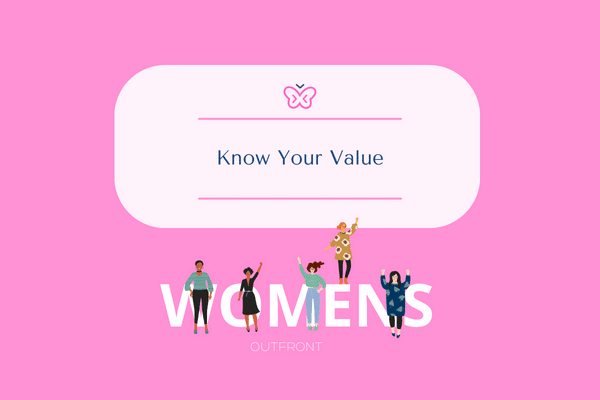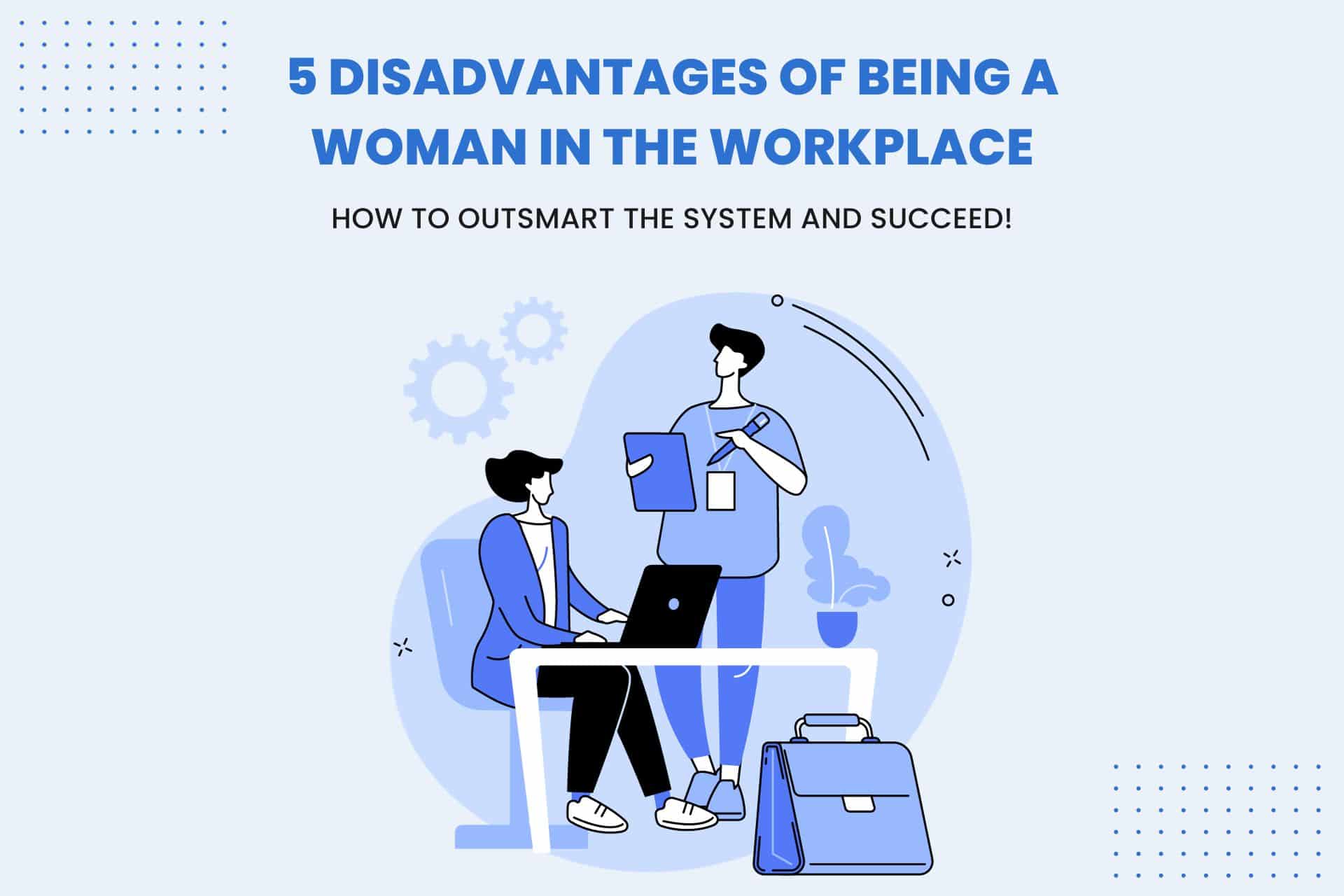The Secret to Negotiating the Raise or Promotion You’ve Earned
Ah, the elusive work-life balance. It’s like hunting for a four-leaf clover in a field of threes, especially for us women. The eternal circus act of managing career, family, and personal wellness can sometimes feel like you’re tightrope walking with no safety net below. So how do you keep all the balls in the air without feeling like you’re in an endless loop of “Oops, dropped one”?
Here’s the illuminating secret—knowing your value can transform this constant juggling act into a well-orchestrated performance.
Why? Because when you know your value, you’re empowered to ask for that promotion, negotiate that raise, and claim that last piece of cake like the superstar you are. You go from a hesitant participant to the ringleader of your own life’s circus.
We’ll guide you through the ins and outs of highlighting your worth in the workplace and beyond. No more guilt, no more doubt, just pure “I’m fabulous, and it’s high time everyone knew it” energy.
Are you ready to shift the balance and elevate your game?
Let’s roll up our sleeves and get started.
Here's What You Will Find

Key Takeaways
Know Your Value
Know Your Value: Recognizing your value is the first step in advancing your career and improving your work-life balance. It’s not just about the paycheck; it’s about understanding what unique skills and qualities you bring to the table.
Challenge Stereotypes: Don’t let societal myths and stereotypes about women in the workforce hold you back. Replace limiting beliefs with empowering truths and stand tall in your accomplishments.
Seek Support: Networking and mentorship can act as career catalysts. A strong support system can provide valuable insights, job opportunities, and emotional backing to help you thrive professionally.
Be Prepared and Take Action: Whether it’s preparing for the “raise or promotion” conversation or handling a “no,” being prepared and proactive can set the stage for future opportunities. Remember, a “no” is not a rejection; it’s a chance to reroute and try again.

Know Your Value and Leverage It to Ask for a Raise or Promotion
Confidence in one pocket and a game plan in the other—that’s your toolkit for securing that raise or promotion. But wait, what fuels this confidence?
You guessed it—knowing your value. Hold on, don’t space out on me! We’re not venturing into “woo-woo, find-your-inner-unicorn” territory.
We’re about to break down tangible strategies for assessing your worth in both professional and personal settings, allowing you to strut into that meeting room like you own the place.
By the time you finish, you’ll be armed with a wealth of actionable tips: from calculating your value in hard and soft metrics to mastering the art of pay and promotion discussions all the way to gracefully navigating those awkward “no’s.
Plus, we’ll shed light on how societal expectations might be chipping away at your sense of value—and what you can do to counteract that.

Why Is Knowing Your Value So Important?
Let’s get real for a moment: How many times have you mentally rehearsed a speech asking for a raise, only to chicken out at the last minute?
Or worse, convinced yourself you’re not ‘ready’ for that promotion? We’ve all been there—standing at the metaphorical edge, scared to take that leap of faith. Knowing your value is your safety net, my friend. Let’s dig into the why.
Knowing your value is crucial for both personal and professional growth. It directly influences your self-esteem, ability to negotiate better opportunities, and overall sense of fulfillment in life. Knowing your worth empowers you to make informed decisions that align with your skills, contributions, and aspirations.
Impact of Knowing Your Value on Self-Esteem and Career Trajectory
You know that pep you get after completing a challenging project or finally mastering that devilish yoga pose? That’s self-esteem, and it’s delicious! But you may not know that self-esteem isn’t just a feel-good factor; it’s your career’s rocket fuel.
Studies indicate that self-esteem and self-worth are directly correlated to career success. A Journal of Applied Psychology report found that individuals with higher self-esteem are more likely to be proactive and choose challenging roles, which naturally puts them in the fast lane for promotions.
So, when you know your value, not only do you boost your self-esteem, but you’re also nudging your career along a brighter path. It’s a win-win without the guilt!
The Ripple Effect Knowing Your Value Has on Work-Life Balance
Imagine your life as a well-oiled machine—okay, maybe more like a semi-well-oiled machine with a few squeaky parts. (We’re all works in progress, am I right?) When one cog in this machine—say, your work life—gets the lubrication it needs (read: recognition and compensation), it creates a ripple effect.
Suddenly, your home life doesn’t seem so chaotic, and the time you spend on self-care doesn’t feel like stolen moments but rather a well-deserved break.
Knowing your value at work and being appropriately compensated for it can improve your work-life balance exponentially. It can lead to a decrease in work-related stress and an increase in life satisfaction.
According to a study published in the Journal of Vocational Behavior, those who are more satisfied with their work are likely to experience better work-life balance. In other words, when you know your worth and advocate for it, you’re also paving the way for a more harmonious life outside of the office. Talk about killing two birds with one sassy, empowered stone!
Knowing your value isn’t just a one-off task you can tick off your to-do list. It’s a continual process, an ongoing conversation with yourself. And the best part? This dialogue doesn’t just resonate within the four walls of your workplace. It spills over, filling your life with a sense of purpose and balance you never knew you needed.
So, are you ready to cast that pebble and create some ripples?
How Do You Measure Your Value?
If someone were to ask you, ‘What’s your worth?’ you’d probably chuckle awkwardly and change the subject. No judgments—we’ve all been there. But it’s a question worth pondering (pun intended).
So, how exactly do you put a ‘price tag’ on your value without breaking out in hives? Strap in because we’re about to lay it all out.”
Understanding your value in a professional setting is essential for personal and career growth. It can empower you to seek opportunities that align with your skills and aspirations. Measuring your value, however, can be complex.
Here, we break it down into two categories: objective metrics and subjective metrics.
Objective Metrics (KPIs, Successful Projects, etc.)
Let’s get down to brass tacks. Objective metrics are your bread and butter when it comes to measuring your value in a way that even your boss can’t argue with. Think of these as the ‘hard evidence’ that you bring to the courtroom of career advancement.
Objective metrics are quantifiable indicators that offer clear evidence of your contributions and effectiveness in your role. These can be critical when discussing promotions or negotiating salary. Here are some ways to gauge your value through objective metrics:
Key Performance Indicators (KPIs)
These are measurable outcomes tied to your role within the company. KPIs may include sales targets, project completion rates, customer retention, and other specific metrics that align with your organization’s goals.

Completed Projects
Successfully leading or participating in projects can demonstrate your competence and effectiveness. Document each project’s scope, your role, and its impact on the company’s objectives.
Skill Upgradation
Continuous learning is a solid indicator of your commitment to personal and professional development. If you’ve acquired new certifications or completed courses relevant to your job, it demonstrates your proactive approach to adding value to your role.
Awards and Recognitions
Any form of acknowledgment for your efforts, whether internal or from a third-party organization, can indicate your value to your team or the larger organization.
A study by Payscale emphasizes that having such data on hand can strengthen your position when negotiating salary or discussing career advancement.
Subjective Metrics (Team Dynamics, Emotional Intelligence, etc.)
Subjective metrics are less tangible but equally critical in assessing your worth. These attributes may not be easily quantifiable but are essential to team cohesion and the workplace environment.
Team Dynamics
Your ability to foster teamwork, resolve conflicts, or contribute to a positive working atmosphere is invaluable. While these skills might not be directly tied to revenue or other KPIs, they are crucial for maintaining a healthy work environment.
Emotional Intelligence
Skills such as empathy, self-awareness, and effective interpersonal communication are vital for navigating the complexities of workplace dynamics. These skills help you build meaningful relationships with colleagues and clients alike.
Problem-Solving
Your capability to identify issues and develop effective solutions is a valued skill. It showcases your initiative, analytical abilities, and dedication to improving organizational processes.
Cultural Contributions
Adding to a positive workplace culture through leadership initiatives or community involvement can also be a metric for measuring your value, albeit subjective.
Measuring your value involves a comprehensive look at both your quantifiable contributions and the intangible skills you bring to your role. Both are crucial in forming a complete understanding of your worth within your professional setting.
Measuring your value isn’t just a numbers game. It’s a balanced blend of what you can objectively prove and the invaluable intangibles you bring to the table. It’s like a work potluck, and you’re bringing both the main course and the dessert.
So don’t sell yourself short; your full value includes both the tangibles and intangibles that make you the unique professional you are.
Example of How to Know Your Value
Knowing your value is like solving a puzzle; it’s about fitting various pieces—both objective and subjective—together to see the full picture. The clearer this picture, the better positioned you are to advocate for yourself in the workplace.
Let’s use a practical example to illustrate how you can recognize your value.

Step 1: Document Your Objective Contributions
Imagine you’re a marketing manager, and one of your KPIs is to improve website traffic. Over the last quarter, you implemented a new SEO strategy that led to a 25% increase in organic traffic and a 15% increase in customer conversions.
Objective Metric: 25% increase in website traffic and 15% increase in conversions.
Step 2: Assess Your Subjective Contributions
During the same quarter, you also took the initiative to mediate between two conflicting teams within your department. As a result, the project that was falling behind schedule was completed on time, leading to customer satisfaction.
Subjective Metric: Successfully mediating conflicts to meet project deadlines and maintain team cohesion.
Step 3: Upgraded Skills
You also completed a certification course in Advanced SEO tactics during the weekends, enhancing your skills and staying ahead of industry trends.
Objective Metric: Acquiring new certification relevant to your job role.
Step 4: Emotional Intelligence
Throughout these challenges, you were attuned to your team’s morale and well-being, implementing weekly check-ins to ensure everyone felt supported during the stressful project period.
Subjective Metric: Emotional intelligence in maintaining team morale during a challenging quarter.
Step 5: Bring It All Together
Now, to recognize your value, consider how all these aspects—both objective and subjective—collectively contribute to your role and the organization. Your SEO strategy led to measurable improvements in website metrics, contributing directly to the company’s bottom line.
Your conflict mediation and team management skills ensured the project’s success and improved the work environment. Your continuous skill upgradation signifies your commitment to professional growth, and your emotional intelligence contributes to team cohesion and morale.
In this example, the objective metrics give you quantifiable data demonstrating your value. In contrast, the subjective metrics offer a nuanced view of your contributions that may not be immediately quantifiable but are equally important.
Knowing your value involves amalgamating these different facets, preparing you to make a strong case for a promotion, raise, or even just greater job satisfaction. This comprehensive understanding underscores the multi-dimensional value you bring to your organization.
What’s Keeping You from Acknowledging Your Value?
Sometimes, even when the evidence of your value is right before you, a stubborn internal voice might question your worth. This internal resistance can come from various sources, but the good news is they’re all surmountable.
Let’s explore what might be holding you back from fully acknowledging your value.
The Guilt-Trap and Imposter Syndrome: Are They Holding You Back?
Guilt and imposter syndrome are notorious culprits preventing you from knowing your value.
Here’s a look at each:
The Guilt-Trap
Especially common among women who juggle multiple roles, the guilt trap convinces you that focusing on your career success is selfish or detrimental to your family or personal life. The fear of being seen as too ambitious can also weigh heavily.
Imposter Syndrome
This is the nagging feeling that you’re a fraud, that your achievements are just a matter of luck rather than skill or hard work. Imposter syndrome can be debilitating, making accepting praise or aspiring for better opportunities difficult.
Research by the International Journal of Behavioral Science has shown that around 70% of people experience imposter syndrome at some point in their lives. If you’re in this majority, know you’re far from alone.
How to Challenge and Change Your Mental Narratives
Addressing these internal barriers involves challenging the narratives you’ve unconsciously accepted. Here are some ways to do that:
Refocus Your Lens
Instead of feeling guilty about your ambitions, reframe them as beneficial for your overall well-being, positively impacting those around you. Studies have shown that job satisfaction can improve mental and physical health (American Psychological Association).
Collect Evidence
One of the best antidotes for imposter syndrome is evidence. Regularly review the list of your accomplishments, both objective and subjective. This act counters the false narrative that you’re not good enough or that you’re a fraud.
Seek Support
It’s often easier to believe in your worth when others reflect it to you. Reach out to mentors, peers, or even therapists who can provide a third-party perspective on your value.
Challenge Negative Thoughts
Be mindful of negative self-talk. Whenever you catch yourself downplaying your achievements or feeling like a fraud, stop and challenge those thoughts. Replace them with positive affirmations or objective facts about your accomplishments.
Visualize Success
Picture yourself achieving your goals and internalize the feeling. Visualization can help make your dreams seem more attainable and can boost your self-confidence.
By identifying and challenging these mental roadblocks, you recognize your value and enable yourself to act on it. The first step to claiming your worth is believing in it. And you should because you are an asset to yourself and the organization you’re a part of.
Are You Making Less Than Your Male Counterparts?
Let’s address the elephant in the room—or, should I say, the office?
Even as we juggle the same workload responsibilities and sometimes outperform our male counterparts, women often find themselves on the less favorable pay scale. Knowledge is power, and you’ve got the power to close that gap.
Here’s how.
The Gender Pay Gap: Facts and Figures
First off, the gender pay gap is real, and it’s not a myth. According to data from the U.S. Census Bureau, in 2019, women earned 82 cents for every dollar earned by men. What’s worse, this gap is even more significant for women of color.
But it’s not just an American phenomenon; it’s a global issue. A report by the World Economic Forum states that it could take another century to close the global gender pay gap at the current rate of change. Let’s not wait a century, shall we?

Actionable Steps to Close the Gap for Yourself
1. Know Your Worth
Refer back to the “How Do You Measure Your Value?” section. Get familiar with both your objective and subjective contributions, and be prepared to articulate them clearly. This is your ammunition.
2. Do Your Research
Know the industry standards for your position and experience level. Websites like Glassdoor and Payscale can be invaluable resources for this. This information can give you the upper hand during salary negotiations.
3. Negotiate, Negotiate, Negotiate
Only about 30% of women negotiate their salaries, compared to 46% of men, according to a study by Harvard Business Review. Change that statistic. Use your research and your list of accomplishments as leverage. If you’re uncomfortable with this, practice with a friend or mentor beforehand.
4. Network
Sometimes, opportunities to advance come from connections. Ensure you’re networking both within and outside your organization to learn about new opportunities or find mentors who can guide you in the right direction.
5. Speak Up
Consider talking openly about salary with trusted colleagues. While it may feel taboo, sharing information can help you and others understand if a significant pay discrepancy needs to be addressed.
6. Seek Legal Counsel
If you’ve tried all else and still find a persistent, unjustifiable gap in pay, it might be time to consult with an employment lawyer to understand your rights and potential courses of action.
Taking these steps can make a real difference in closing the pay gap for yourself and setting a precedent for other women in the workplace. It’s not just about fairness; it’s about respect, value, and knowing that your skills, experience, and contributions deserve equitable compensation. So break through that glass ceiling—it’s been cracked long enough!
How to Effectively Showcase Your Value to Employers?
You’ve worked hard, gathered the data, and found your worth. Now comes the next challenge: How do you showcase this to your employer without looking like you’re auditioning for a reality TV show? Don’t worry; striking that balance between confidence and humility isn’t as hard as tightrope walking.
Let’s break it down.
Building a “Brag Sheet”
Think of a brag sheet as your career’s highlight reel—no slow-motion, just all your fantastic accomplishments, skills, and value adds. This isn’t just a resume; it’s a comprehensive list you keep for yourself, reminding you of everything you’ve achieved and contributed.
Quantifiable Achievements
Document any numbers or metrics that highlight your performance. For instance, “Increased annual revenue by 20%” or “Cut project costs by 15%.”
Skills and Qualities
List down the specific skills that you bring to the table. This can include technical expertise, problem-solving abilities, or your knack for excellent communication.
Recognition and Awards
Don’t be shy. If you’ve been recognized for your hard work, jot it down.
Testimonials
Your colleagues or supervisors sometimes articulate your value better than you could. Include any noteworthy compliments or recommendations.
Personal Milestones
Did you lead a challenging project? Perhaps you completed a relevant course or certification. Include these.
This brag sheet is not just for your eyes; it’s a great tool to use during performance reviews or when you’re preparing to negotiate a raise or promotion.
The Art of Self-Promotion Without Coming Off as Arrogant (Think: “Humble-bragging”)
No one likes a show-off, but there’s a way to share your accomplishments without triggering eye-rolls. The trick? It’s all in the presentation:
Be Factual
Stick to the facts and numbers; they speak for themselves. If you say, “I helped increase client retention by 30%,” you’re not boasting; you’re sharing a fact.
Share the Credit
Did your team play a role in your success? Acknowledge them. It shows that you’re not only successful but also appreciative of others.
Context Matters
Frame your achievements within the larger context of team goals or company objectives. This way, it doesn’t come off as self-centered but aligns with broader success.
Be Genuine
Authenticity goes a long way. Be real about your struggles and challenges as well. It shows that you’re human and that you’ve earned your success.
Ask for Feedback
This is a sneaky one. Asking for feedback can sometimes be an opportunity to discuss your accomplishments. For example, “I noticed customer satisfaction improved after implementing my proposal. Do you have any feedback on how we can maintain this momentum?” It’s a softer way of bringing your achievements into the conversation.
Navigating the world of self-promotion can be as tricky as walking in stilettos on cobblestone streets—challenging but doable. Your skills and contributions are worth noticing; make sure they’re front and center where they belong. After all, if you won’t advocate for yourself, who will?
Sample Brag Sheet: A Practical Example
Ever heard of a “Brag Sheet”? No, it’s not where you jot down how you finally convinced your cat to respect you. (Although, kudos if you’ve managed that feat!) A Brag Sheet is an incredibly effective tool for keeping track of your achievements, skills, and value contributions at work. Think of it as your career’s highlight reel.
What to Include:
1. Objective Metrics:
List your quantifiable achievements. Did you exceed sales targets? By how much? Did you complete a project under budget? Include numbers whenever possible.
Example: “Exceeded Q2 sales target by 15%, bringing in an additional $20,000 in revenue.”
2. Subjective Metrics:
Your team loves you. Your emotional intelligence is through the roof. But how do you capture these qualities on paper?
Example: “Facilitated a team-building exercise that resulted in a 20% increase in team communication and collaboration according to internal surveys.”
3. Professional Development:
Include any new skills or certifications that you’ve picked up.
Example: “Completed a Project Management Certification, applying new skills to streamline workflow, reducing project delivery times by 10%.”
4. Client or Team Testimonials:
Have any written commendations from clients or team members? Include snippets.
Example: “Client feedback: ‘The team led by [Your Name] consistently delivers on time and exceeds expectations.'”
5. Special Projects:
Sometimes, you do incredible things that don’t fit neatly into your job description.
Example: “Initiated and led a sustainability campaign within the office, reducing paper waste by 25% in six months.”
So, go ahead, create your Brag Sheet, and shine like the career superstar you are! When it’s time for that raise or promotion conversation, you’ll have all your best plays in one place.
Trust me, it’s much easier than trying to summon your achievements from the depths of your memory while you’re sitting across from your boss.
How to Initiate the “Raise or Promotion” Conversation?
You’ve done your homework, prepped your brag sheet, and you’re pretty much the human embodiment of a LinkedIn profile that screams, “I’m awesome!”
So, what’s next? The dreaded “talk.” It’s like “The Talk” in a relationship but with less drama and potentially more financial freedom. Here’s how to get into it without getting awkward.
Picking the Right Time and Setting
Timing isn’t just the secret sauce in comedy; it’s also crucial when discussing something as significant as a raise or a promotion. Here are some cues to know when the stars are aligning in your favor:
Performance Review
This is the most obvious and generally acceptable time to discuss salary and career progression.
After a Big Win
Have you just successfully led a high-stakes project? Use the positive momentum to your advantage.
Company’s Financial Health
If your company has recently announced great quarterly results, it may be more receptive to salary discussions.
Your Manager’s Mood
This one’s a bit subjective, but if your boss is having a terrible week, maybe hold off on asking for more money.
Private and Professional Setting
Avoid public spaces and casual environments. A formal, one-on-one meeting is ideal.
The Do’s and Don’ts of the Conversation
If asking for a raise were a salsa dance, then there would be steps you’d have to follow. One wrong move, and you risk stepping on your partner’s toes—literally and metaphorically.
So here are some dance steps, I mean, conversation guidelines:
Do’s:
Be Prepared
Have your brag sheet or at least the highlights ready. Know your value and be prepared to articulate it clearly.
Be Specific
Ambiguity is your enemy here. Know the number or position you’re aiming for and be able to justify it.
Show Enthusiasm
Let your employer know you’re excited about your role and the future contributions you plan on making.
Be Open to Alternatives
Sometimes, a raise may not be feasible, but maybe more vacation days or other perks could be on the table.
Don’ts:
Don’t Apologize
You’re not asking for a favor but discussing a business proposition.
Don’t Get Emotional
Stick to the facts and stay professional, even if the conversation doesn’t go as planned.
Don’t Compare
Saying, “John makes more money than me,” won’t strengthen your case. Stick to your own merits.
Don’t Ultimatum Unless You Mean It
Threatening to leave if you don’t get what you want is risky unless you’re prepared to follow through.
Starting the conversation about a raise or promotion can be daunting, but remember: You’ve already proven your worth; you’re just putting a figure or a title to it. So go ahead, seize the moment, and may the odds be ever in your favor. After all, if you never ask, the answer will always be no.
What if the Answer is No?
Okay, let’s say you’ve put all your cards on the table, but the universe decided to serve you a cocktail of “Not today, sweetheart.” First of all, let’s not see it as a rejection but as a “not yet.” A “no” isn’t a dead-end; it’s a detour, a chance to reroute and try again.
So, how do you handle this without turning into the Hulk or sobbing into your pillow? I’m glad you asked.
How to Handle Rejection Gracefully
Handling rejection gracefully is like walking out of a meeting with your head held high, even if you’ve just spilled coffee on your white blouse. Here are some tips:
Be Professional
Thank your manager for considering your proposal. This might feel like eating a humble pie, but will make a lasting impression.
Ask for Feedback
If the door didn’t open, at least look through the keyhole. Ask what you can improve upon or what goals you should aim to achieve before the next discussion.
Don’t Burn Bridges
Reacting negatively can set you back for future negotiations and your daily work environment.
Reflect
Take some time to think over what was said and how you can use the feedback positively.
Setting the Stage for Future Opportunities
A “no” now doesn’t mean a “no” forever. And this isn’t just a line I picked from a cheesy romance novel; it applies to your professional life.
Here’s how you can set the stage for future discussions:
Set a Timeline
Ask when would be a more appropriate time to revisit the subject. This gives you a concrete timeframe to work with.
Step Up Your Game
Use this time to prove your value further. Meet or exceed the benchmarks set during your feedback.
Keep Records
Continue to update your brag sheet with new accomplishments and skills acquired. This will be your ace in the hole for the next round.
Stay Informed
Keep an eye on industry salary trends and any shifts within your company that could work in your favor next time.
Network
Sometimes, opportunities come from unexpected places. Stay connected with your colleagues, attend industry events, and never underestimate the power of a casual coffee catch-up.
Getting a “no” is like tripping in public—you can either lie there or get up, dust yourself off, and keep walking like you’re on a fashion runway. Rejection isn’t the end; it’s a plot twist. Keep your eyes on the prize and know that your time to shine is soon approaching. And hey, if all else fails, there’s always next year’s performance review to prep for.
So don’t lose that brag sheet!
The Juggling Act Many Women Face in Maintaining a Work-Life Balance
Ah, the work-life balance—a mythic creature often talked about but rarely seen in the wild, especially if you’re a woman. Imagine you’ve just mastered a perfect soufflé, wrapped up a critical work presentation, and found five minutes to meditate—all in the same day! Feels like a win, right?
But here’s the kicker: The next day, you find yourself buried in laundry, swamped with emails, and dodging calls from your child’s school. It’s a rollercoaster, and you’re not even tall enough to enjoy the ride.
For many women, maintaining a work-life balance can feel like walking a tightrope—add the double burden of work and domestic responsibilities, and it’s more like walking that tightrope in high heels while juggling flaming torches. According to a Pew Research study, 41% of moms said being a parent has made it harder for them to advance in their careers, compared to just 20% of dads.
What Does Society Say vs. What Should You Believe?
“Ah, societal norms—the ‘helpful’ tidbits of wisdom that often seem to push you into a neat little box, gift-wrapped in clichés like, ‘Women aren’t good at math,’ or, ‘That’s not ladylike.’
But here’s the million-dollar question: What should you actually believe? Spoiler alert: Often, it’s not what society’s trying to peddle.”
Common Stereotypes and Myths About Women in the Workforce
Let’s dish out some uncomfortable truths, shall we? Stereotypes about women in the workforce are as prevalent as cat videos on the internet. You’ve heard them all: ‘Women are too emotional for leadership roles,’ ‘Women can’t handle high-pressure jobs,’ ‘Motherhood diminishes work performance.’ And let’s not forget the timeless classic: ‘Women should be nice, not assertive.’ Ah, what a heap of baloney!
Unfortunately, these stereotypes do more than just hurt your feelings; they have real-world consequences. According to a study from Harvard Business Review, women often underestimate their abilities while men overestimate theirs, largely due to social conditioning. And guess who ends up taking the back seat in promotions and salary negotiations? You guessed it—us, ladies.
Replacing Limiting Beliefs with Empowering Truths
It’s not all doom and gloom. Arm yourself with knowledge, and you become a one-woman myth-busting machine. Remember, stereotypes hold power only if you let them.
So, how do you replace these limiting beliefs with truths as fabulous as you are?
Acknowledge but Don’t Internalize
Just because you’ve heard something a million times doesn’t make it true.
Equip Yourself with Facts
For instance, multiple studies show that women-led companies actually perform better than those led by men. A 2019 study from S&P Global found that firms with female CEOs and CFOs produced superior stock price performance compared to the market average.
Be Your Advocate
It’s not bragging if it’s true. Got a skill? Flaunt it. Crushed a project? Share it.
Seek Empowering Role Models
Surround yourself with women who are breaking barriers, not just glass ceilings. Take inspiration from their journeys to reinforce your own beliefs.
So the next time someone tries to box you in with stereotypes, channel your inner Beyoncé and say, ‘Boy, bye!’ After all, you’re not just a woman in the workforce but a force to be reckoned with. And don’t you forget it!
The Power of Networking and Mentorship
You’ve heard the saying, “It’s not what you know but who you know.” Well, I’d like to add, “And who knows you, and who knows what you’re capable of!” Networking and mentorship are like the wind beneath your wings, propelling you higher and faster than you’d ever imagined.
Let’s unpack this suitcase of opportunities, shall we?
How Can a Support Network Uplift You?
Networking isn’t just about collecting business cards faster than Pokémon cards; it’s about creating meaningful relationships to help you navigate your career journey.
Knowledge Sharing
A strong network can provide you with industry insights, tips, and advice you might not have access to otherwise.
Job Opportunities
Many positions are filled through internal recommendations. Being part of a network means you get the insider scoop.
Emotional Support
Having a rough day? A good network can offer emotional support and the kind of pep talks that make Tony Robbins look like an amateur.
Skill Development
Your network can guide you in identifying the skills you need to work on and may even help you acquire them.
Accountability
Like a gym buddy, but for your career, having someone to keep you accountable can give you that extra push to reach your goals.
Real-life Success Stories of Women Who’ve Benefitted from Mentorship
Sheryl Sandberg: Facebook’s COO was mentored by none other than Larry Summers, her professor at Harvard. She attributes her rapid career growth partly to the insights and advice she gained from her mentorship experience.
Oprah Winfrey: Mentored by Maya Angelou, Oprah often cites her mentor’s wisdom as foundational in shaping her worldview and approach to success.
Indra Nooyi: The former CEO of PepsiCo had mentors both within and outside of her industry, attributing her ability to break glass ceilings to her mentors’ guidance and diverse perspectives.
Local Heroes: You don’t have to be a Fortune 500 executive to benefit from mentorship. I have a friend—let’s call her Sarah—who was stuck in a mid-level management job for years. She reached out to a former boss for mentorship, and within a year, she not only got a significant raise but also moved to a leadership role in a new company.
The key takeaway? Mentorship isn’t just for the heroines in Netflix dramas; it’s for every woman willing to reach out, ask questions, and tap into the collective wisdom of those who’ve paved the way. It’s like having a career fairy godmother, but instead of a pumpkin carriage, you get to ride in a limo made of confidence and well-earned accomplishments!
So go ahead, build your network, find your mentor, and get ready for your career to soar like it’s got a pair of turbo-charged wings. Because trust me, ladies, networking and mentorship are the jet fuel you’ve been looking for.
The Empowering Journey of Knowing Your Value
You’ve navigated through the twists and turns of this journey we call “Know your value,” and we’re so proud of you for making it this far.
Remember, a job title or a paycheck doesn’t determine your worth; it’s defined by you, your abilities, and the unique qualities only you can bring to the table. So, rise, shine, and make the world take notice because the most rewarding chapters of your life start when you know your value.
A Rallying Cry to Recognize Your Value and Take Actionable Steps
Now’s the time to put your thoughts into action, ladies! Don’t just bookmark this page and forget about it. Implement these tips, share your success stories, and continue this beautiful journey of self-discovery and career growth.
Share the Wisdom: Help Other Women Discover Their Value
If you found value in this post (pun totally intended), please don’t hesitate to share it with other phenomenal women in your life who could benefit from a little nudge of empowerment. The more we share, the more we lift each other up—so spread the love and the wisdom.
For any questions or if you need further guidance, feel free to contact us anytime. We’re here to support you in your ongoing journey toward knowing your value and achieving your dreams.
Until next time, keep thriving and keep shining, you amazing woman!
More on Careers

5 Disadvantages of Being a Woman in the Workplace: Insider Strategies to Turning Setbacks into Success!

Career Development Plan for Women: The Game-Changing Steps to Master Your Career Goals!

9 Career Development Strategies That Will Make You Unstoppable in Your Industry

Career Development for Women: Discover the Must-Know Strategies for a Thriving Career!

How to Ask for a Raise as a Woman: Must-Know Strategies to Boost Your Paycheck!
Related Articles
5 Disadvantages of Being a Woman in the Workplace: Insider Strategies to Turning Setbacks into Success!
Mastering Organizational Resilience: 7 Insider Strategies for Bulletproofing Your Business!
Entrepreneurship, Career Development
Operational Resilience: The Game-Changer Strategies Every Business Leader Needs to Know!
Career Development, Entrepreneurship
7 C’s of Resilience in the Workplace: Master These Skills and Watch Your Career Soar!
Emotional Resilience in the Workplace: Master the Art of Bouncing Back and Winning at Work!



